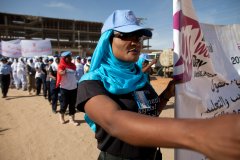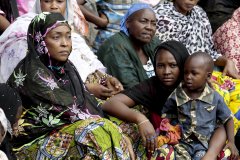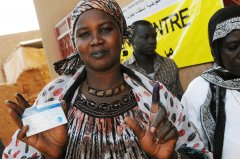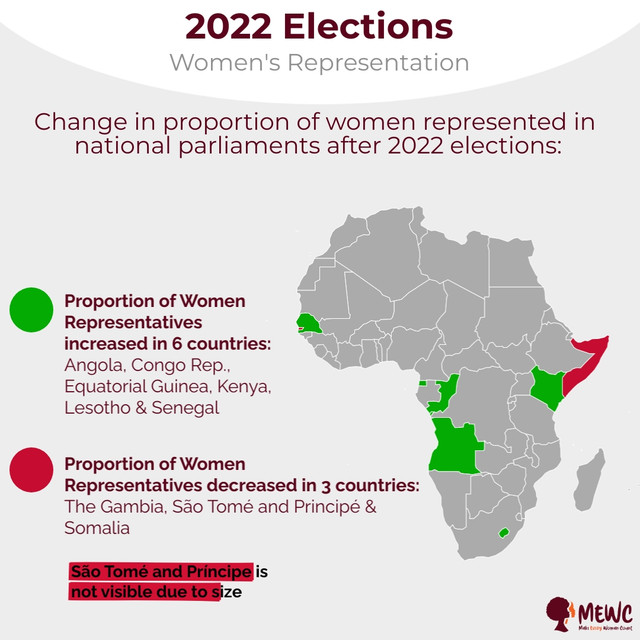Gender Issues Showlist
Women, Peace & Security
UNSCR 1325 calls on all parties to: protect and respect the rights of women and girls in conflict & post-conflict; increase women participation in all conflict resolution, peacekeeping and peace-building & to end impunity by prosecuting perpetrators of sexual and other violence on women and girls
index.php?option=com_content&view=category&id=56&Itemid=1913
Human Rights of Women
Thirty six years after the adoption of CEDAW, many women and girls still do not have equal opportunities to realize rights recognized by law. Women are denied the right to own property or inherit land. They face social exclusion, “honor killings”, FGM, trafficking, restricted mobility, early marriage,...
index.php?option=com_content&view=category&id=44&Itemid=1908
Violence Against Women
Violence against women is the most shameful human rights violation. Gender based violence not only violates human rights, but also hampers productivity, reduces human capital and undermines economic growth. It is estimated that up to 70 per cent of women experience violence in their lifetime
index.php?option=com_content&view=category&id=69&Itemid=1912
Political Participation & Leadership
Where women are fully represented, societies are more peaceful and stable. Women political participation is fundamental for gender equality and their representation in positions of leadership must be a priority for all Africans governments.
index.php?option=com_content&view=category&id=65&Itemid=1911
Latest News
- COTE D'IVOIRE: South-South Meeting to Promote Gender Equality and Combat Deforestation
- RWANDA: Rwanda Set to Launch Cervical Cancer Elimination Plan
- NIGERIA: Over 5,000 Nigerian Women Stranded in Iraq - Govt
- SUDAN: Healthcare Collapse Threatens Pregnant Women in Sudan's Sharg El Nil
- GHANA: President Nominates 12 More Ministers
- Senegal: Parliamentary election 2024
- Mauritius: Parliamentary election 2024
- Ghana: Presidential and Parliamentary Elections
- Botswana: Parliamentary elections 2024
- Algeria: Presidential Election 2024
SUDAN: Japan Funds Major Upgrade to Al-Jazeerah Girls' School
Source: Sudan Tribune
The recent handover ceremony of Al-Jazeerah state's Al-Komor Village Girls' Primary School, which has undergone a series of extensive refurbishments, was attended by a number of foreign and Sudanese dignitaries.
The project was funded by the Japanese government through its grant assistance scheme for grassroots and human security projects (GGP).
The Japanese ambassador to Sudan, Ryoichi Horie, state minister of education Abdalla Alturabi and commissioner of South Al-Jazeerah locality Mohamed Alnor Omer Abu Hassan were among those to attend the event on the 18 March.
The project provided for the construction of two new classrooms, teachers' offices and toilets, as well as upgrades to six existing classrooms and two teachers' offices.
The Japanese ambassador said the project was intended to improve the educational environment at the school, which currently has 280 student enrolments and 16 teachers on staff.
Speaking at the ceremony, Horie emphasised the importance of primary education in supporting children's personal development in order for them to realise their true potential.
A statement issued by its embassy in Khartoum said the Japanese government has made significant contributions to socio-economic development in Sudan, particularly in Al-Jazeerah state, where it has been providing technical assistance in rice production and irrigation.
It has also provided funding assistance for the construction of two other primary schools in the region.
The Japanese GGP scheme is designed to support projects that address basic human needs, such as access to health, water and sanitation, education, skills development, and other means to maximise opportunities for individuals, particularly at community level.
The Japanese government recently announced it would contribute $37.7 million to the United Nations and other international organisations to help consolidate peace efforts in conflict-affected areas in Sudan.
The contribution is expected to provide emergency assistance to internally displaced persons, refugees and returnees, with the biggest chunk going to the UN's refugee agency (UNHCR), which will receive $15 million to fund its protection programmes for at risk people.





